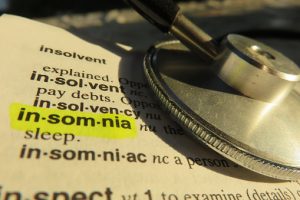
Insomnia causes, symptoms, and natural remedies to sleep well without sleeping pills
What is insomnia? Well, if you’re one of the many Americans who can’t sleep at night and find yourself unable to stay asleep or have trouble falling asleep, that is a good indication you may have insomnia. A good night’s sleep is nature’s best medicine. But unfortunately, many Americans find it difficult to get their six to eight hours of shut-eye. The problem with sleeplessness is that it gets worse as you grow older.
There are many reasons why this happens, so it is a good idea to get an understanding of the causes and symptoms of insomnia before we discuss natural sleep remedies and tips for better sleep. Continue reading…
Asthma patients have higher rates of insomnia, according to research findings. Scientists found that insomnia was more common among people with asthma and is associated with poorer asthma control, as well as depression and anxiety.
Asthma patients often report sleeping troubles, but the prevalence of insomnia and its link to asthma have long been unknown.
The researchers found that 37 percent of asthma patients suffered from insomnia. Patients with higher body mass index, worse lung function, and lower income were more susceptible to sleeping troubles. Even though the patients did not report nighttime asthma symptoms, nearly 25 percent of them still had insomnia. Those with insomnia were more likely to use healthcare services for their asthma. Asthma patients with insomnia had worse control of their condition. Continue reading…
Stroke risk and recovery are linked to sleep disorders like insomnia and sleep apnea. Based on study findings, researchers recommend that patients who have experienced a stroke or mini-stroke should be screened for sleep disorders.
Study author Dirk M. Hermann said, “Although sleep disorders are common after a stroke, very few stroke patients are tested for them. The results of our review show that should change, as people with sleep disorders may be more likely to have another stroke or other negative outcomes than people without sleep problems, such as having to go to a nursing home after leaving the hospital.”
The researchers further recommend that patients with sleep apnea be treated with a CPAP device as it improves post-stroke outcomes.
The researchers reviewed a number of studies examining stroke and sleep disorders. They combined the collected data for a meta-analysis. Continue reading…
Heart failure and heart attack risk increases in people with insomnia. The study followed 54,279 people aged 20 to 89 years for over 11 years. The researchers found that insomnia sufferers had three times higher risk of heart failure and heart attack risk compared to those without the symptoms of sleep disorder.
Researcher Dr. Lars Laugsand explained, “We related heart failure risk to three major insomnia symptoms including trouble falling asleep, problems staying asleep, and not waking up feeling refreshed in the morning. In our study, we found that persons suffering from insomnia have increased risk of having heart failure. Those reporting suffering from all three insomnia symptoms simultaneously were at considerably higher risk than those who had no symptoms or only one or two symptoms.”
“We do not know whether heart failure is really caused by insomnia, but if it is, insomnia is a potentially treatable condition using strategies such as following simple recommendations concerning sleeping habits (often referred to as sleep hygiene), and several psychological and pharmacological therapies. Evaluation of sleep problems might provide additional information that could be used in prevention of heart failure,” he continued. Continue reading…
If you’re tossing and turning, unable to fall asleep at night, and then hitting the snooze button again and again the next morning you’re not alone. Insomnia and difficulty sleeping is a common problem that most people experience at one (or more) time in their life. According to the American Academy of Sleep Medicine 30-35 percent of adults in the U.S. are afflicted with insomnia.
Although everyone is susceptible, it is more likely to affect older adults – especially women – as well as anyone experiencing stress or suffering from certain health problems. Everyone knows the clichéd way to overcome insomnia: counting sheep. However, there are many more effective insomnia treatments, both medical and natural, but first you need to learn about insomnia symptoms and insomnia causes to understand how you can start getting the sleep you need.
A neurologist and sleep medicine physician at the University of Alabama at Birmingham (UAB), Amy Amara, M.D., Ph.D., says there are many contributing factors to sleep loss. After treating patients at the UAB’s Sleep/Wake Disorders Center Amara says the best way to wake up feeling healthy and energized is simply to get a good night’s sleep. Unfortunately, with insomnia, that often feels like an impossible goal. Continue reading…
Related: How to combat stress to treat insomnia